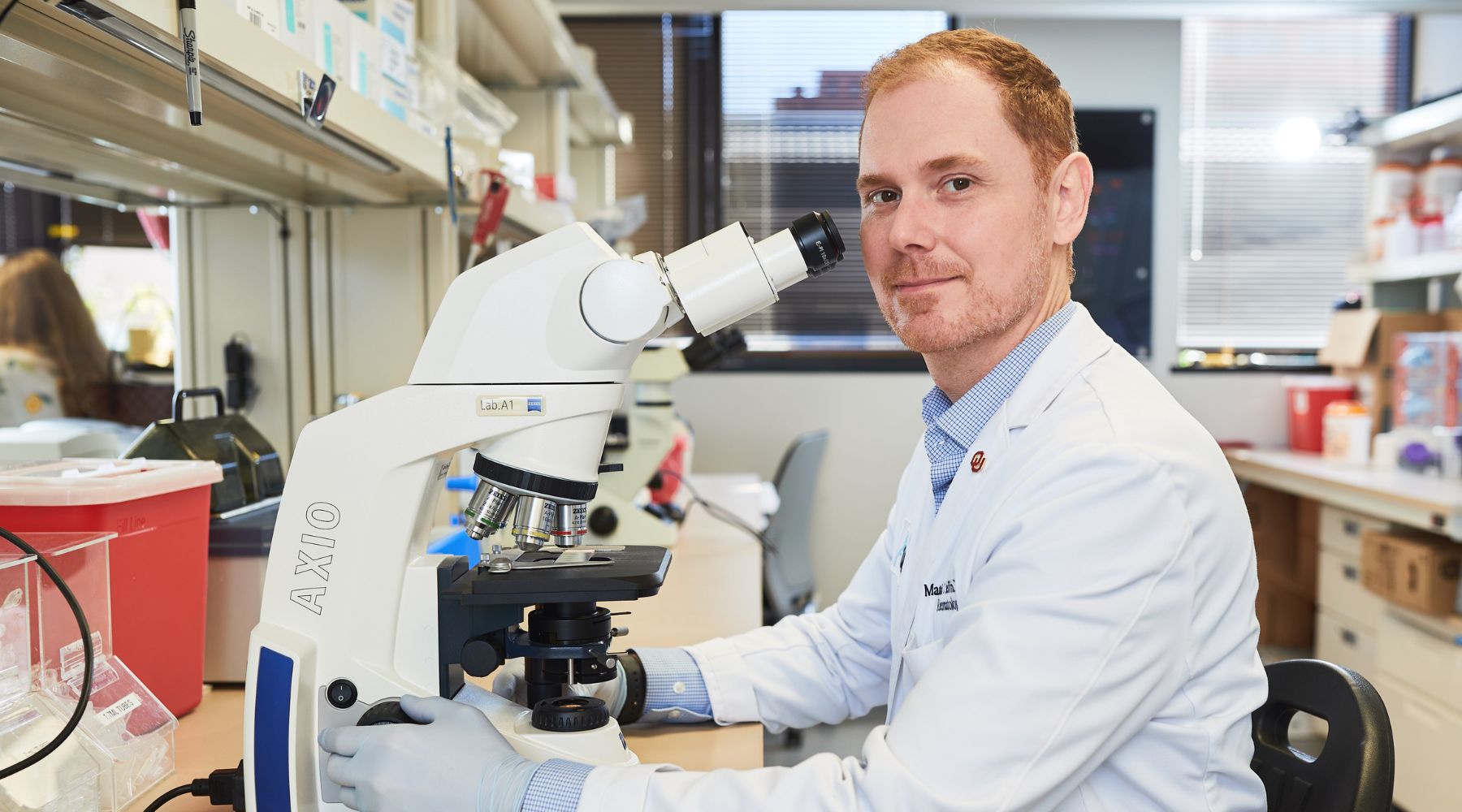The National Institutes of Health has awarded the Oklahoma Medical Research Foundation a $412,610 grant for research aimed at better understanding why some people develop arthritis while others don’t.
Using existing human blood samples, physician-scientist Matlock Jeffries, M.D., will develop a predictive model that he hopes will begin to address that mystery. In the process, he also expects to learn more about the link between our gastrointestinal system and osteoarthritis, the most common form of the disease.
“One goal for this model is to outline the type of person most likely to develop OA and how soon they might begin experience symptoms,” said Jeffries, a rheumatologist who directs OMRF’s Arthritis Research Center.
OA, a degenerative joint disease, is the nation’s leading cause of disability, particularly among older people. Knees are the most frequently affected joint, followed by hips and hands. The condition often triggers the need for joint replacement, the most common hospital procedure covered by Medicare.
Jeffries’ lab studies the connection between OA and the gut microbiome, which is composed of trillions of bacteria, fungi, viruses that live in our digestive system. Research has shown that these microorganisms play a crucial role in our health.
Recent studies have found that some forms of bacteria may travel from our intestines through the blood into our joints. However, the exact role these bacteria may play in causing OA is unknown.
To probe this question, Jeffries will analyze blood samples collected previously from about 1,500 people. He’ll focus on inflammatory markers present in the blood. “We believe this inflammation travels through the bloodstream to the joint,” said Jeffries.
If Jeffries can link those biomarkers to an increased incidence of OA, physicians could use that as a way to predict those likely to develop the joint disease. They could then work with patients on strategies aimed at delaying disease onset and reducing disease burden.
Jeffries also hopes the research will identify a connection between the bacteria and inflammation, a link that could open doors to new treatment pathways for OA.
Judith James, M.D., Ph.D., OMRF’s executive vice president and chief medical officer, believes the project could lead to important clinical advances.
“Dr. Jeffries’ research has potential to give us much greater clarity not only on who will develop OA, but also what their disease progression may look like,” said James. “I’m excited to see how his predictive model may help our patients.”
The grant, No. 1R21AR085344-01, was awarded by the National Institute of Arthritis and Musculoskeletal and Skin Diseases, part of the NIH. Jeffries received funding from the Presbyterian Health Foundation of Oklahoma City for preliminary research preceding this grant.



